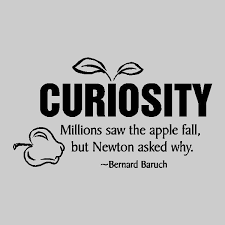
If you manage or recruit talent for major gift programs, your key objective is to hire top performing major gift officers. If you are a MGO, one of your critical goals is to be a top performer.
New research has surfaced that helps managers and MGOs get closer to what they want. I find it fascinating and very helpful because the research uncovers four characteristics of top performing MGOs:
- They have intellectual and social curiosity;
- They are behaviorally and linguistically flexible;
- They love to distill information; and
- They are strategic solicitors.
I’m going to explore these four characteristics in the next four posts. But first some background.
The Education Advisory Board used this research to find out if college fund-raisers were in the top third, middle third, or bottom third in terms of money raised and having met their particular fund-raising goals. They found one natural prototype that would encompass the best performers. The EAB called that profile the Curious Chameleons.
Mr. Nagaraj, the lead researcher says: “in real life they (the curious chameleons) are the people who can spend two hours in an 80-degree condominium drinking a warm Tab with an 85-year-old grandmother and then quickly switch gears for a 30-minute pitch to a high-powered lawyer. They are also the people who are equally comfortable sorting through the results of data analytics generated by the development office’s prospect-research team and taking in the esoteric work of a university’s star scientist.”
Mr. Nagaraj goes on to say that, “while it is incredibly difficult to teach someone how to be intellectually curious, most of the other characteristics of Curious Chameleons can probably be taught or enhanced through training.”
You can get into all the details of how the EAB arrived at these conclusions by following the links I have provided. But here’s the interesting point related to performance. The EAB says that people who fit this profile were 49 percent more likely to have been in the top third of performers at their institutions, and 78 percent more likely to have exceeded their fund-raising goals.
These conclusions are why Jeff and I find this profile so compelling and helpful to the hiring and training of MGOs. Let’s go to that first characteristic – intellectual and social curiosity.
The research describes this trait as a thirst to learn more about people, places and things. The choice of words here is interesting to me. A thirst – a drive – there is restlessness here. This is important. To learn more, which means that the MGO never has enough information. More needs to be acquired.
And then there are these three sub-points to a thirst to learn more. I have added my comments and application to each:
- Accesses a deep and wide repository of knowledge to inform donor discussions. This repository could be about the programs your organization has, the societal problem that the program is addressing, the solutions that are addressing the problem, the successes that have been achieved or even the stories behind the main players addressing the problem. It is not just simply “we are trying to feed 200 people a day.” It is all the issues surrounding feeding. The intellectually and socially curious MGO wants to know about all of it – every single bit of it.
- Identifies the link between seemingly disparate ideas. Sometimes the causes of a problem addressed by the nonprofit are difficult to uncover. This person makes the connection. Or there is a situation the donor is involved in that has a hidden connection to the mission of the organization. Or the donor has a special relationship many levels removed from the organization’s cause, but linked to the cause in unexpected ways. The intellectually and socially curious MGO makes these connections.
- Probes donors by asking thoughtful, insight-generating questions about their goals and interests. This is a central point Jeff and I are always talking about – identifying the passions and interests of donors and matching them to the organization’s needs. This characteristic takes time and gentleness to execute. And often if the MGO is going for the money rather than finding out about the goals and interests of the donor, he will trample carelessly through a conversation with the donor and end out in the wrong relational place. I like the choice of words on this point. Probes, which means an intentional act to uncover information. It is not a laid back activity. It is about proactively leaning into the conversation to discover information. But this probing is not reckless. It is thoughtful, which means careful and respectful. And it is insight-generating.
Even though Mr. Nagaraj states that it is difficult to teach someone this characteristic, I think a MGO could improve in this area through proper planning and an act of will.
I am a naturally curious person. I always want to know the why about everything. It drives those close to me nuts. But here is what I have concluded about this area. If I weren’t curious and I knew that information was critical to my success, here is what I would do:
- I would talk to other MGOs, who have a higher degree of curiosity than me and might be more successful than me, and ask them to identify the categories of information they seek when they are talking to donors. I would make a list of those categories.
- Then I would ask them to teach me how they get the information, what questions they ask and what nuances they watch for. I would make a list of those questions and nuances.
- I would then use this information to plan an approach to my donor. I would make a specific list of questions for each donor and actually write out how I am going to ask those questions. I would practice all of this before my meeting with the donor.
- I would then execute my plan with the donor and be very careful to take my time and listen for verbal and body language clues that I am either asking too much, asking wrong or not stopping when I should.
I know this is complicated and, if you are not wired to be intellectually and socially curious, it is difficult to do all of this. But I would try. And even if you improve just a tiny bit, you will find that your success with donors will increase dramatically.
My next post will be about being behaviorally and linguistically flexible. It should be interesting.
Richard
Series details:







0 Comments
Trackbacks/Pingbacks